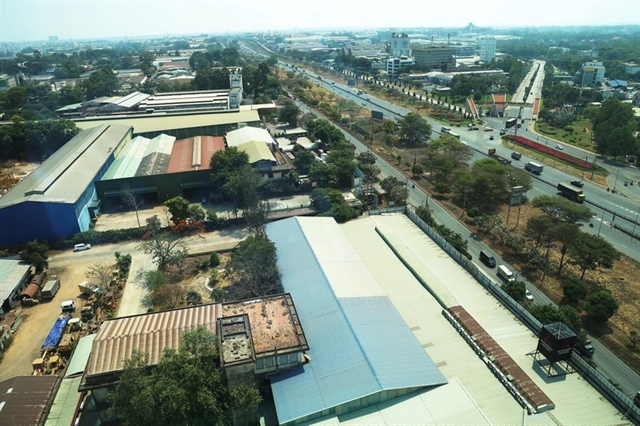Businesses insisted the decrease, if and when approved, would be a step in the right direction, but should be a part of a larger strategy to control costs.

HCM CITY — As the Government considers another land rent reduction of 30 per cent for 2025, businesses have insisted the decrease, if and when approved, would be a step in the right direction but should be a part of a larger strategy to control costs.
Land rent hikes have become a growing concern in the business community, affecting both domestic and FDI enterprises. In Đồng Nai Province, one of the largest industrial hubs in the Mekong Delta and Việt Nam, provincial authorities have met regularly with businesses after the Lunar New Year to help solve difficulties over steep rent increases.
Local businesses said in November 2024, the provincial government proposed raising land rents in four of its many industrial zones by 17-43 per cent. Once approved, rent at Amata Long Thành High-Tech Industrial Zone will have reached VNĐ2.8 million (US$109) a sq.m, a 22 per cent increase from an earlier proposal. Over the past five years, land rents in Đồng Nai have surged 15-20 times, putting increasing financial pressure on businesses and investors.
This issue is not unique to Đồng Nai.
Across the country, businesses have reported they face increased risks due to inconsistent pricing models and frequent changes. For example, from one province to the next nearby, land rent could be 30-40 per cent higher or lower, creating market distortions unnecessarily.
In an earlier development, the Vietnam Chamber of Commerce and Industry (VCCI) voiced support for the Ministry of Finance’s 30-per cent land rent reduction proposal for the year, a continuation of policies from 2021-2024 that aided economic recovery. On the other hand, observers have remarked that a 30 per cent cut may not have the intended effect in provinces when land rents have tripled or quadrupled in recent years.
Businesses said they have concerns over how the new land pricing frameworks could disrupt cash flow and profit plans, with annual rent hikes reaching billions of VNĐ at times. In addition, 2025 has been said to be a year ripe with economic uncertainties and tension.
Risk factors included potential trade tensions between large economies and blocks, increased trade barriers, the depreciation of the VNĐ and inflation threats.
“Higher input costs for materials, energy, and wages force businesses to raise product prices, fueling inflation,” said Assoc. Prof., Dr. Ngô Trí Long.
As the Southeast Asian economy heavily relies on imported raw materials, global price volatility and a stronger greenback could put further pressure on production costs.
Meanwhile, the Government has considered extending several other tax and fee cuts as the General Statistics Office published a report, stressing the importance of maintaining tax relief measures, including environmental tax cuts on fuel and VAT reductions, to curb rising prices.
VCCI advised the Government to take a proactive and adaptive approach to address 2025's challenges, including minimising supply chain disruptions, inflationary pressures, and export hurdles. — VNS





